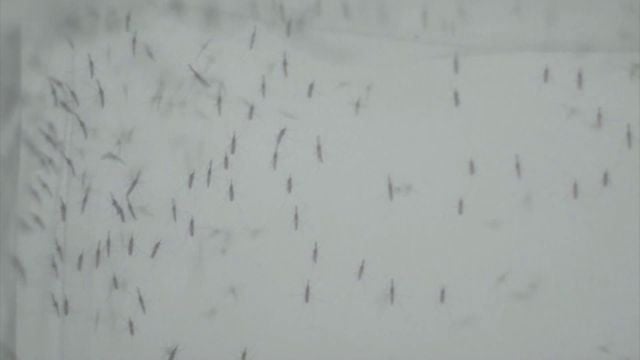Potentially deadly disease returns to Mid-Atlantic region

A potentially deadly virus back in the Mid-Atlantic region.
Eastern Equine Encephalitis, known more simply as Triple-E, is a disease spread by mosquitoes and was found last week in Norfolk Virginia.
“It’s not real unusual to find evidence of transmission, particularly down in that tidewater area of Virginia.” And “There’s a lot of Triple-E.” Said Dr. Bill Meredith, the Mosquito Control Section administrator with DNREC.
We’re in the middle of Triple-E season which runs from late spring to early fall.
“We have Triple-E here in Delaware. We’re always on the lookout for it, that’s why we run our sentinel chicken program.”
Using chickens as test animals, DNREC checks throughout the season to see if Triple-E has come to Delaware. So far this season it hasn’t.
But the process that leads to infected mosquitoes is a bit more complicated and involves more of the animal kingdom.
It often starts in a freshwater swamp. There, the virus spreads from mosquitoes to songbirds. From mosquito to bird, and bird to mosquito, it’s a cycle. At that point it doesn’t affect humans or any other mammals because those types of mosquitoes usually just stick to birds.
When it gets dangerous for mammals — is when that songbird is bitten by a different species of mosquito, one that does*feed on mammals. From there, the mosquito can bite a horse or a human and spread Triple-E.
There’s a vaccine for horses but there isn’t one yet for humans. Mild symptoms include headache, fever, and sore throat. However, a more serious infection could lead to permanent brain damage, seizures, and death.
“It has a pretty high fatality rate, running anywhere from up to 70% in the elderly or in children. Maybe about 40% in healthy adults. ” Said Dr. Meredith.
While it’s undoubtedly dangerous, but Dr. Meredith says outbreaks are rare.
Still, it’s always good practice to protect against mosquitoes which can spread other diseases like West Nile Virus and Chikungunya.
To do so, the Virginia Department of Health recommends:
- Limiting outdoor exposure between dusk and dawn
- Eliminating standing water on areas like tarps or flat roofs
- Clean out your gutters and downspout screens


